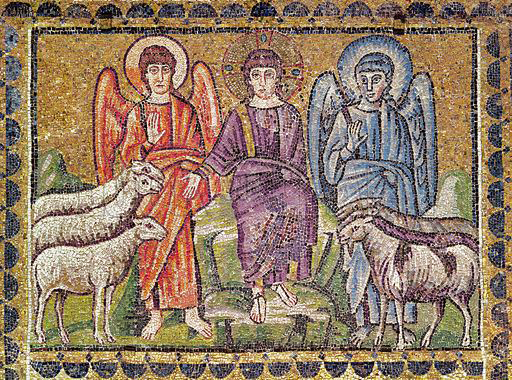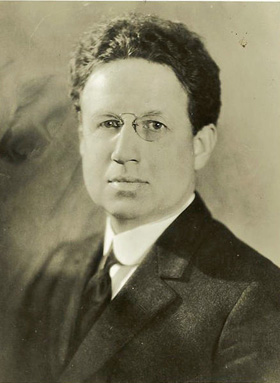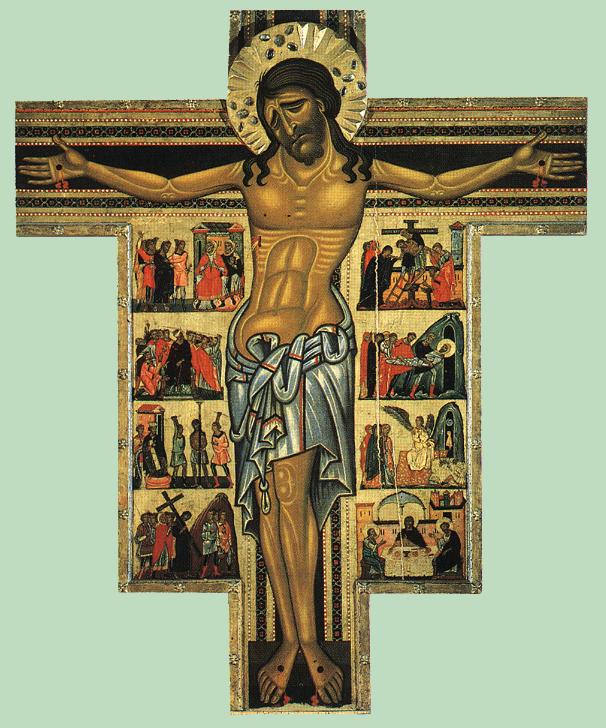March 2013
Being Raised From the Dead
-----------------------------------------------------------------------------------------------------------------------------------------------
Getting the Point of 1 Corinthians 15:50
March 31 is the day that we celebrate the Resurrection of Our
Lord Jesus Christ – Easter Day. It is a day of great jubilation,
for on this day our suffering, crucified Lord is exalted beyond
the darkness of the grave, and we also are given the hope of
everlasting life with him in heaven. Alleluia!
But
none of this happens easily or naturally. It is not automatic
that all who live and die go on to heaven when they die. That is
because 1 Corinthians 15:50 says that the perishable cannot
inherit the imperishable. If it could, we would then all pass on
easily and automatically to the imperishability of heaven upon
perishing or dying here on earth.
What
does this mean for us? According to John 5:28-29 we’re told not
“to marvel at this; for”
the hour is coming when all who are in the tombs will hear
Christ’s voice and come forth, those who have done good [sheep],
to the resurrection of life, and those who have done evil
[goats], to the resurrection of judgment.
(Mt 25:32).
|
 |
each going to their respective places. The differentiating
factor is belief in Jesus as Lord and Savior (John 3:16; Romans
10:10-13). So pray that
God will send you the Holy Spirit to bless you with faith in
Jesus Christ – that heaven may belong to you as well when you
die. Amen.
Pastor Marshall |
|
|
|
_________________________________________________
Being Attentive Stewards
As we are getting further into
the New Year, I’d like to request that we all keep the church’s
financial health in mind.
Consciously making the decision to tithe (to give a
portion of what you receive on a regular basis) helps to make
our giving more consistent.
I would encourage everyone to work toward tithing to the
church.
Tithing is frequently mentioned in scriptures (Genesis 28:20-22,
Leviticus 27:30, Deuteronomy 14:22, Malachi 3:8-10) and serves
many purposes. Here
are just a few reasons to give and work towards a full tithe:
1)
Spiritual discipline
– giving away a portion of our resources reminds us that
God is our provider; all we have is a blessing from Him
and we need to put our trust in Him.
2)
Financial discipline
– making a commitment to give away part of what you
receive may cause you to more closely monitor how you
spend your money and improve your stewardship in all
things.
3)
Maintenance and care for our facilities
– we have a beautiful facility, and beside general
expenses for day-to-day operation, there are many
maintenance costs (some that may be hidden from view)
but are necessary to keep the facility in a state of
proper repair.
4)
Source of livelihood for our staff
– we have a tremendously talented and hardworking staff
who deserve more than we are able to compensate them.
At a minimum, we need to meet our commitments for
their compensation.
5)
Providing support for those in need
– through our Extended Ministries programs, we support
efforts to aid those in need in our community and
abroad.
6)
Thanksgiving
– we have much to be thankful for at FLCWS.
The quality of the worship service, the
preaching, the music, the teaching, and the fellowship
all work together to keep our hearts in the right place
– giving thanks for the promise of mercy that we have
inherited through our faith in Jesus Christ.
Please prayerfully consider all
these things when planning your giving now and throughout the
year.
“O give thanks
unto the LORD; for he is good and his mercy endures forever.”
Psalm 106:1
Peter Douglass,
Church Council
|
|
March Book
With the Mind:
Readings in Contemporary Theology
3-5 pm in the
Church Lounge, Saturday, March 23rd. The book
for March is Moneyball:
The Art of Winning an Unfair Game (2004), by Michael Lewis.
This is the story of how a losing National League Baseball team
– the Oakland Athletics – became a winning team without spending
more money. Lewis compares them to the David and Goliath story
(1 Samuel 17:1-54) (p. 298). And there are other Biblical themes
explored in this book as well: the problem of judging people
fairly (p. 72), how appearances deceive (pp. 117, 281), the
value in oddballs (pp. 100, 122), the inadequacy of feelings
(pp. 62, 263), the value and limits of reason (pp. 68-69, 78,
83, 87, 98, 112, 243, 274-278, 289), how God influences luck
(pp. 123, 231), how money is overvalued (pp. 270, 279) and how
the majority can be wrong (pp. 95, 96, 280).
A copy of Lewis’ book is in the church library. If you would
like to purchase one for yourself, contact Pastor Marshall. Feel
free to attend our meeting when we discuss how the David and
Goliath story plays itself out in the strangest of all places –
in Major League Baseball!
ANNOUNCEMENTS:
GOLDEN FELLOWSHIP:
There will be no
luncheon in March.
SCRAPPERS
will not meet in March.
Instead they will meet the first and last weeks in April.
Interested?
If you are interested it’s easy; all you need to do is bring a
sack lunch and a friend.
FOOD BANK
DONATION
suggestions for March are canned meats, chilies and stews.
2013 FLOWER
CHART
could use a few more families to sign up for Easter Flowers.
MARK YOUR
CALENDARS
–
West
Seattle
Food Bank
Instruments of Change benefit & social hour: live music,
guest speaker, dinner, and a dessert auction at the Hall of
Fauntleroy. Friday, May 3, 2013, 6-9 pm.
Also West Seattle
Helpline 8th Annual Taste of West Seattle on May 16th,
tickets will be available in the office.
WEB PAGE
ADDRESS:
www.flcws.org
–
Log on to see what is new. |
| WEST SEATTLE RECYCLING buys your recyclables of aluminum cans and newspapers and sends the church a 10% bonus check a couple of times a year. Pastor Marshall is willing to take donations if left in his carport. Also #6 Styrofoam can now be recycled (the kind that snaps when broken). Please put cans and Styrofoam donations in bags before leaving at the back of the parsonage carport – newspapers must be tied. |  |
|
Extended Ministries
|
| Growing up my family brought can goods to church service every Sunday. After the formal offering of monetary gifts and tithes, the priest would ask all the children in the congregation to come forward with their offerings of non-perishable food to be given to the local food bank. At first I looked at it as an excuse to get rid of the canned peas |  |
|
with pearl
onions and SPAM my dad always insisted on buying; however, as I
got older this tradition became a constant reminder about our
call to feed the hungry and care for the sick. For many years, I
thought that every church had a similar tradition. It wasn’t
until I left home that I realized my home congregation was
special in that regard. |
|
Holy Week &
Easter Schedule
Plan to join us for our Holy Week and Easter Festival liturgies,
listed below. Also,
note that we will be having our Easter Brunch again this year,
on Easter morning, 9 to 10 am, sponsored by the March service
team.
$5 general and $12 for families.
Remember the food bank!
Bring a can or bring a bag.
|
|
Dr. Fosdick on Immortality
---------------------------------------------------------------------------------------------------------
The
Centennial
of His Classic Defense
By Pastor Marshall
ONE HUNDRED YEARS
ago, Dr. Harry Emerson Fosdick (1878-1969) published his classic
defense of immortality under the title,
The Assurance of
Immortality (1913) (New York: MacMillan, 1917). This month I
end my three month study of his defense.
In the last section of his book on the reality of life
after death, Dr. Fosdick moves beyond the mere possibility of
eternal life to a surer footing – a “confident faith” in
immortality itself (p. 141). He does this even while knowing
that some are already driven by their strong desire for life
eternal, to “leap out in confident affirmation” that the sheer
possibility of immortality makes it true – once we’ve seen that
the arguments against it are inconclusive (p. 94).
He builds up this confidence on the basis of three
factors – which form a
reductio ad absurdum est argument for immortality (p. 105).
Regarding the first two, he writes:
Whether one starts … from the
scientific affirmation that the universe is reasonable or from
the religious faith that the universe is friendly, he comes
inevitably to the conviction that death does not end all
(p. 126).
|
|
With this confidence in place we don’t have to wait until the
end to enjoy the wonders of heaven. That’s because the “truth of
immortality makes [for] great living [right now].” For the “man
who lives as though he were immortal lives in a universe where
the highest spiritual values are permanent; … and where, in all
public-minded devotion to moral causes on earth, we are not
digging artificial lakes to be filled by our own buckets, in
hopeless contest with an alien universe, but rather building
channels down which the eternal spiritual purpose of the living
God shall flow to its far-off divine event” (pp. 138)! |
 |
|
Romans 16.18
Monthly Home Bible Study, March
2013, Number 241
The Reverend Ronald F. Marshall
Along with our other regular study of Scripture, let us join as
a congregation in this home study. We will
study alone then talk
informally about the assigned verses together as we have
opportunity. In this way we can "gather
together around the
Word" even though physically we will not be getting together
(Acts 13.44).
We need to support each other in this difficult project. In 1851
Kierkegaard wrote that the Bible is "an extremely dangerous
book.... [because] it is an imperious book... – it takes the
whole man and may suddenly and radically change... life on a
prodigious scale" (For
Self-Examination). And in 1967 Thomas Merton wrote that "we
all instinctively know that it is dangerous to become involved
in the Bible" (Opening
the Bible). Indeed this word "kills" us (Hosea 6.5) because
we are "a rebellious people" (Isaiah 30.9)! As Lutherans,
however, we are still to "abide in the womb of the Word" (Luther's
Works 17.93) by constantly "ruminating on the Word" (LW
30.219) so that we may "become like the Word" (LW
29.155) by thinking "in the way Scripture does" (LW
25.261). Before you study, then, pray: "Blessed Lord, who caused
all holy Scriptures to be written for our learning: Grant us so
to hear them, read, mark, learn, and inwardly digest them, that
we may embrace and ever hold fast the blessed hope of
everlasting life, which you have given us in Our Savior Jesus
Christ. Amen" (quoted in R. F. Marshall,
Making A New World: How
Lutherans Read the Bible, 2003, p. 12).
Week II.
Read again Romans 16.18
noting this time the word
deceive. Why can’t we see through these deceptive ploys? On
this read John 3.19 noting the line
men loved darkness.
Why don’t we naturally go for the light? Read again John 3.19
noting the line because
their deeds were evil. How is that a reason for loving the
darkness? On this read Ephesians 5.11-13 noting the words
works,
darkness,
expose,
shame and
secret. What do these
verses tell us about ourselves? On this read John 8.44 noting
the words father,
devil and
desires. Does that
verse explain our waywardness – loving darkness and all the
rest? But what about God? Doesn’t Matthew 6.9 say that he’s our
father – and not the devil? On this read 2 Corinthians 4.4
noting the words god,
world,
blinded and
unbelievers. Does
this mean there’s a tug-of-war going on between two fathers? On
this read Romans 7.21-23 noting the words
evil,
close,
war and
captive. Where does
that leave us? On this read Ephesians 6.11 noting the words
on,
whole,
able and
wiles. Is that
enough? How so?
Week III.
Reread Romans 16.18
noting the word
simple-minded. What’s wrong with simple-mindedness? On this
read Ephesians 4.11-14 noting the words
equip,
building,
mature,
children,
tossed
cunning and
deceitful. What makes
children so vulnerable? On this read 1 John 4.1 noting the words
believe,
every,
test and
false. Is being too
ready to believe – being gullible – a severe problem? On this
read 1 Corinthians 13.7 noting the line
love… believes all things.
How then can we reign in love? On this read John 15.12 noting
the line as I have loved
you, with John 2.24-25 noting the words
but,
trust,
all and
in. How jaded is
that? Was Jesus gullible? Hardly! What should we then do? On
this read Colossians 1.28 noting the words
proclaim,
warning,
teaching,
present and
mature. Read also
Hebrews 5.14 on maturity
and solid
food. What would this
solid food be? On this read Matthew 13.21 noting the risks
involved in tribulation
and persecution.
Contrast this with the
joy over sufferings
expressed in Romans 5.3-5. Is that the formula we’re seeking for
spiritual maturity – having the ability to weather existential
storms? If so, how does that help?
Week IV.
Read Romans 16.18 one
last time noting the word
hearts. What does the heart stand for? On this read Luke
8.15 noting the words
honest and fruit.
If this has to do with faithful productivity, how are such
hearts acquired? On this read Ezekiel 11.19-20 noting the words
give,
put,
take,
walk,
keep and
obey. Why must God do
this for us? On this read John 15.5 noting the words
vine,
branches,
apart and
nothing. Read also
Jeremiah 18.2-6 noting the words
reworked,
seemed,
hand and
clay. Why is our role
in this process reduced to the point of nothing? Isn’t that odd
given the fact that we are the ones involved? On this read
Ephesians 2.3 noting the word
wrath, and 2 Peter
2.14 noting the word
accursed. Does that explain our elimination? If so, why? |
|
|
X
PARISH PRAYERS
X
Remember in prayer before
God those whom He has made your
brothers and sisters
through baptism.
Tim Allen, Sam Lawson, Cynthia Natiello, Jim Coile, Connor
Bisticas, Agnes Arkle, Clara Anderson, Peggy Wright, Bob &
Barbara Schorn, Rosita & Jim Moe, Jim Cunningham, Amy and Tyler
Tabor, Kelsey Ensey, Cameron Lim, Maureen Baris, Chris & Margeen
Bowyer, Paul Sampson, Pete Williams & Family, Al and Robin Berg,
Ron Combs, Ion Ceaicovschi, Dorothy Pinney, Olivia DeCroce,
Gretchen Millie, Luke Bowen, June Whitson, Trevor Drake, Carol
Long, Don Kahn, Jim and Ruth Shaovaloff, Grant Donnellan &
Family, Sharon Cooper, Dano, Karen & W. Erick, Mary Lou Jensen,
Annette Grubisich, Luther Seminary, Saint Paul, MN.
Pray for the shut-ins that the light of Christ may give them
joy: Clara
Anderson, Pat Hansen, Donna Apman, Agnes Arkle, C. J. Christian,
Vera Gunnarson, Anelma Meeks, Olive Morrison, Dorothy Ryder,
Lillian Schneider, Crystal Tudor, Vivian Wheeler, Peggy Wright.
Pray for our bishops Mark Hanson and Chris Boerger, our pastor
Ronald Marshall, our deacon Dean Hard and our cantor Andrew
King, that they may be strengthened in faith, love and the holy
office to which they have been called.
Pray that God would give us hearts which find joy in service and
in celebration of Stewardship.
Pray that God would work within you to become a good
steward of your time, your talents and finances.
Pray to strengthen the Stewardship of our congregation in
these same ways.
Pray for the hungry, ignored, abused, and homeless this March.
Pray for the mercy of God for these people, and for all
in Christ's church to see and help those who are in distress.
Pray for our sister congregation
El Camino de Emmaus,
in the
Pray that God will bless you through the lives of the saints:
Thomas Aquinas, teacher, 1274; Joseph, guardian of our
Lord. |
|



